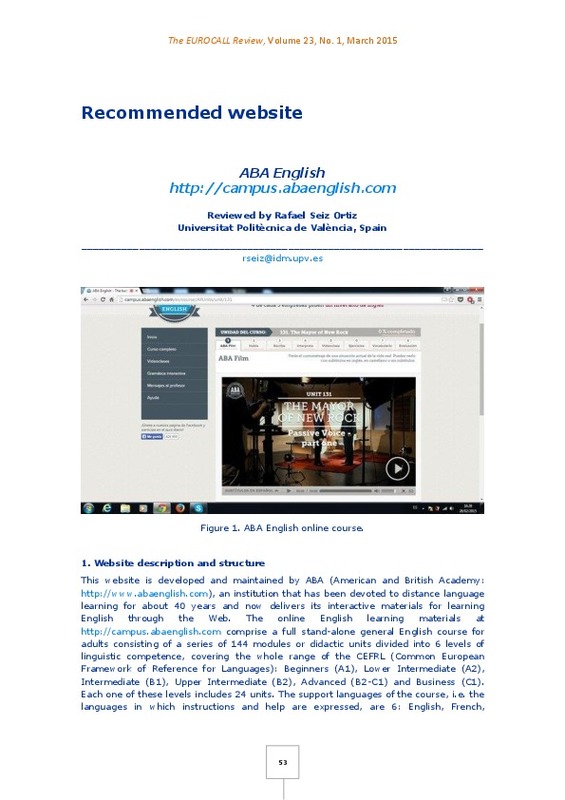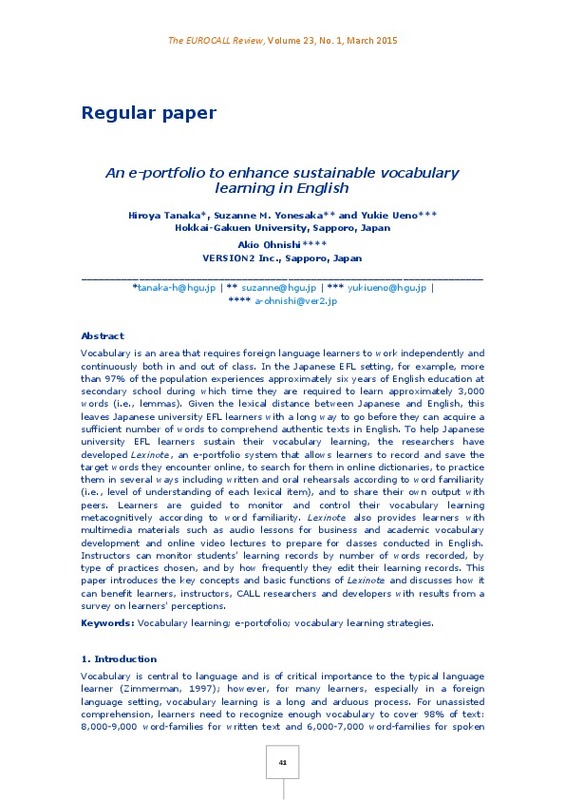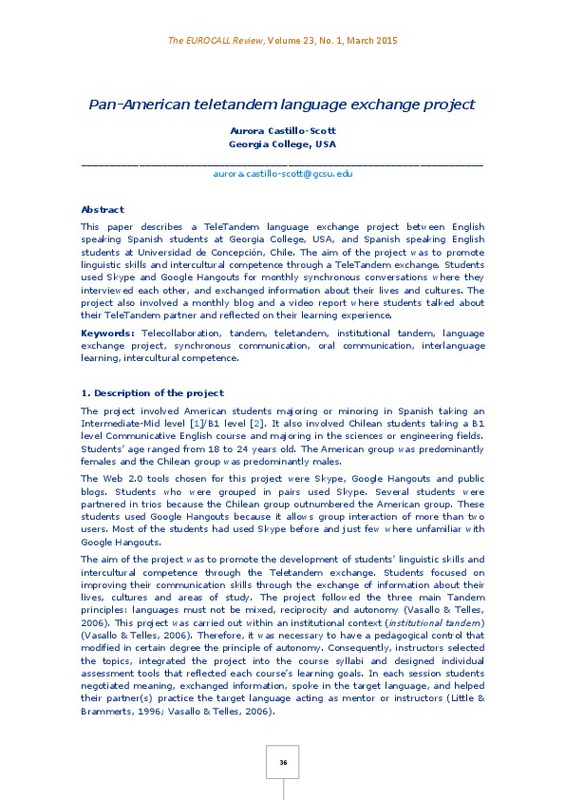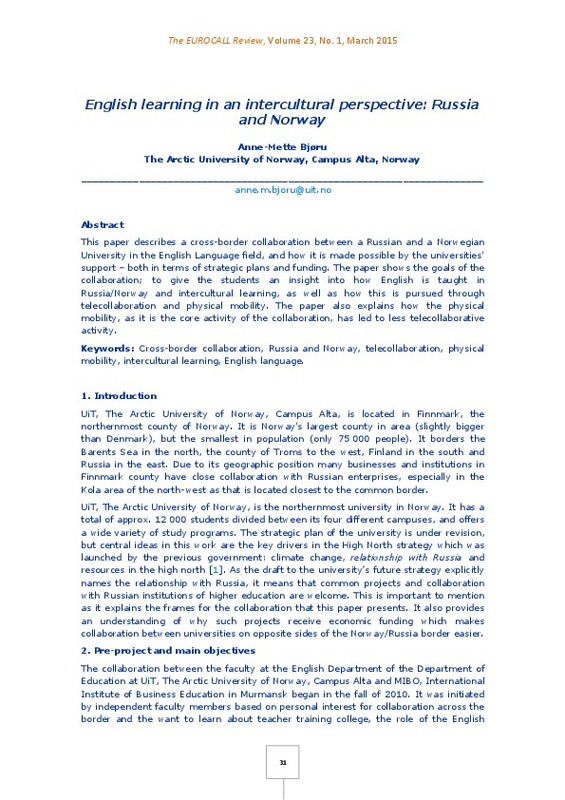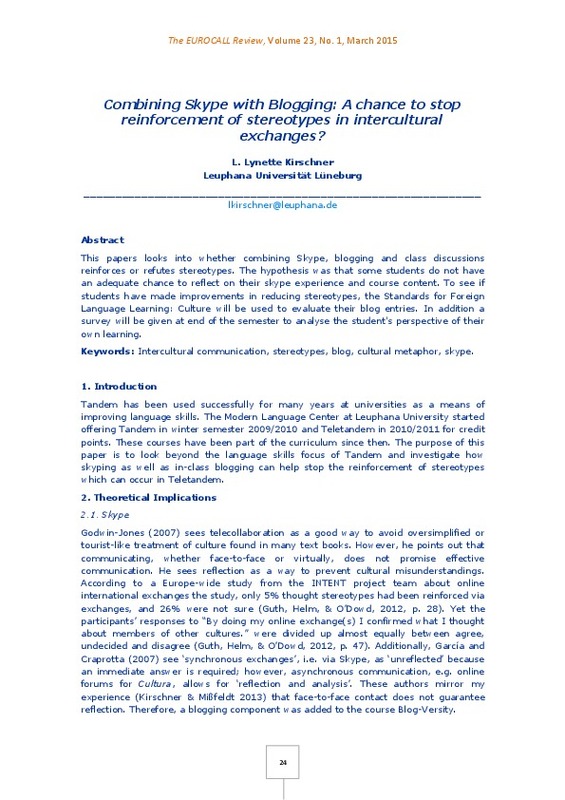- RiuNet repositorio UPV
- :
- Investigación
- :
- Material investigación. Editorial UPV
- :
- Revistas UPV. Editorial UPV
- :
- The EuroCALL Review
- :
- The EuroCALL Review - Vol 23, No 1 (2015)
JavaScript is disabled for your browser. Some features of this site may not work without it.
Refinar
The EuroCALL Review - Vol 23, No 1 (2015)
Tabla de contenidos
Papers stemming from the INTENT conference
- Promoting critical thinking in online intercultural communication
- Why in the world would I want to talk to someone else about my culture?
- A blended learning scenario to enhance learners’ oral production skills
- Combining Skype with Blogging: A chance to stop reinforcement of stereotypes in intercultural exchanges?
- English learning in an intercultural perspective: Russia and Norway
- Pan-American teletandem language exchange project
Articles
- An e-portfolio to enhance sustainable vocabulary learning in English
Recommended website
- ABA English



